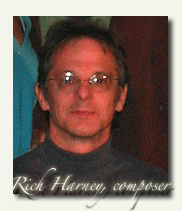by Gary Powell
Every parent will be presented with different challenges and opportunities concerning the development of their talented offspring. It might be the right time to think about your child’s development strategically and not just a strategy for financial success but a strategy for nurturing a balanced human being who also loves to sing. Soon I will have the Guide for the Parents of the Gifted and Talented written and made available here on my site.

Meet Lauren Tenney, a 15 year-old singer referred to me this summer who has now landed her first major record label singing credit on “Cheetah Girls Karaoke”.
Weekly, I become a music career consultant for wonderful parents who recognize their child’s talent and want the best for them. The book will endeavor to address all your best wishes and even some hidden or unconscious wishes as well. In the meantime, I will share with you in this post a quick overview concerning several aspects of the young singer’s talent and career development.
As more performing opportunities arise for your children to showcase their talent, you parents of the gifted and talented will soon reach that awkward stage of being caught between the excitement of emerging opportunities (which are your child’s and yours) and those hard-earned-well-deserved cautious attitudes (which are solely yours).
We adults quickly make the shift of assessing whether or not upcoming amateur performances at service clubs, funerals, weddings and church events could or should be managed into career-building steps for your young performer. Many of you will find a plethora of opportunies for singing the National Anthem almost anywhere. (I sang it while precariously hiding behind a tree at a veteran’s funeral in Huntsville, Texas while in music school.) This period can create difficult decisions for parents who want not only quality opportunities, but safe opportunities for their sons and daughters. For most of you, the ensuing love-fest of these events will eventually turn into a chore.
No doubt your off spring’s talent, beauty and youth is rich for speculation. My first advice is that you, the parent, are the one who has to step back from the seduction of the business and try to get a good “read†on the people with whom you choose to associate your child. Second, really get truthful about the source of ambition which might be a bit tricky when the whole family engages around this highly charged topic. There’s nothing wrong with ambition; it’s just important to know where it’s coming from and whom it is going to affect and for how long.
If the path leads you to music recording producers, always do research on the credentials of these prospective producers, remembering that having no credentials is not necessarily bad and having great credentials is not necessarily good. Listen to their previous recordings and have someone you trust listen to them also. Ask lots of questions about their creative procedures. (I will help you with the right questions in the book.)
If producers use phrases like “it’s just magic”, “wow, magic happens” or “we just wait for the magic”, then please immediately knock on the next door down.
Be legal and contract wise. You should examine length of contract, percentage of future earnings, who owns the master recordings and for how long, delivery dates, termination clauses, etc. It’s not unusual for the contracts to be heavily weighted in favor of whoever wrote them. Although “work for hire” contracts are many times regarded poorly in the creative community, they are one way to get experience, a little money and a session credit which will shine on your resume while you are still young and developing. (I will discuss fully the pros and cons of engaging in “work for hire” contracts in the book.)
Some of you will want to seek advice from your university contacts. It’s a good idea in that these professors are generally genuine people and assess talent every day. The downside is that very few assess talent based in the popular arts and fewer still have experience in the commercial music business. Call them anyway. The academic path has long since taught them not to extend themselves beyond what they can support with facts and figures. Also, their genuine nature inhibits them from just making stuff up in order to win favor. You will find that young, starving or just untalented producers will attempt to win favor in all manner of slightly veiled seductions. If you don’t have antennas for this kind of charlatan, then choose a different profession/passion for your gifted child which actually requires credentials from mentors and teachers.
I hope this primer helps initiate your strategic thinking concerning your young performer. I will have the full book version with more helpful information available soon. In the meantime, consider subscribing to this site for automated email notifications of new posts which will hopefully be helpful and informative.
Try these links to learn about TAG (Talented and Gifted) Programs in Texas:
Park Cities Talented and Gifted
(An advocacy group in the Highland Park Independent School District)
– Janet Hale, Chairman / Dallas, Texas
Texas Association for the Gifted & Talented
Eanes ISD Gifted & Talented Program
– Austin, Texas
Creative Commons Attribution-NonCommercial-NoDerivs 2.5 License

.

 “Battle Hymn of the Republic”
“Battle Hymn of the Republic” 
 integration of the disparate aspects of each of our own histories is complete….. something wonderful happens. Before that time, however, we chase, run in circles and regardless of the goodness of our actions, seldom do we feel “complete”.
integration of the disparate aspects of each of our own histories is complete….. something wonderful happens. Before that time, however, we chase, run in circles and regardless of the goodness of our actions, seldom do we feel “complete”. 
